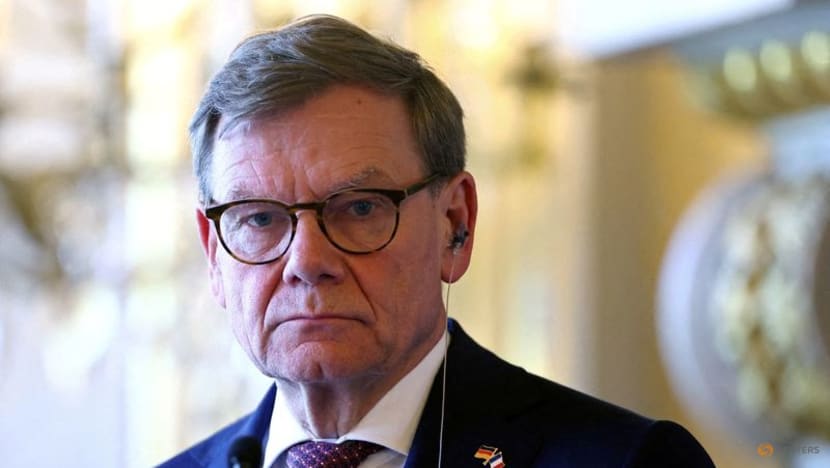German minister urges more pressure on Russia before Trump-Zelenskyy meeting, calls China 'increasingly aggressive'
German Foreign Minister Johann Wadephul also criticised "China's support for the Russian war machine" in Ukraine.

German Minister for Foreign Affairs Johann Wadephul attends a press conference after a meeting at the Quai d'Orsay, France's Ministry of Foreign Affairs, in Paris, France, Jul 18, 2025. (File photo: REUTERS/Abdul Saboor)
TOKYO: German Foreign Minister Johann Wadephul on Monday (Aug 18) called for stepped-up pressure on Russia, including more aid for Ukraine, to push Moscow into concessions toward a "just and lasting peace".
Wadephul spoke in Tokyo as US President Donald Trump prepares to host Ukrainian President Volodymyr Zelenskyy and European leaders, including German Chancellor Friedrich Merz. The gathering follows Trump's talks with Russian President Vladimir Putin in Alaska on Friday.
"It is probably not an exaggeration to say the whole world is looking to Washington," he said at a press briefing alongside Japanese Foreign Minister Takeshi Iwaya.
"Firm security guarantees are central" because "Ukraine must be able to defend itself effectively even after a ceasefire and peace agreement", he added.
Merz, French President Emmanuel Macron, British Prime Minister Keir Starmer and other European leaders met Sunday to bolster Zelenskyy's hand ahead of the White House meeting.
They welcomed US talk of a security guarantee for Ukraine but said Kyiv must be included in any territorial talks and its remaining land protected.
Wadephul also hit out at what he called China's repeated threats to "unilaterally change" borders in the Asia-Pacific region, calling Beijing "increasingly aggressive".
"China repeatedly threatens, more or less openly, to unilaterally change the status quo and shift borders in its favour," Wadephul said, citing the country's behaviour in the Taiwan Strait and the East and South China Seas.
"Any escalation in this sensitive hub of international trade would have serious consequences for global security and the world economy," he added, after talks with Iwaya.
A statement issued on Sunday before Wadephul's visit to Japan - and later Indonesia - said that China was "increasingly asserting its regional supremacy and, in doing so, is also questioning principles of international law".
"China's increasingly aggressive behaviour in the Taiwan Strait and the East and South China Seas also has implications for us in Europe: Fundamental principles of our global coexistence are at stake here," the statement quoted Wadephul as saying.
In the joint press statement in Tokyo, Wadephul also criticised "China's support for the Russian war machine" in Ukraine.
"Without it, the war of aggression against Ukraine would not be possible. China is Russia's largest supplier of dual-use goods, and Russia's best oil and gas customer," Wadephul said.
China's foreign ministry spokeswoman Mao Ning hit back on Monday, telling a regular news conference that the situation in the East China Sea and the South China Sea "remains generally stable".
"We urge the relevant parties to respect regional countries, resolve issues through dialogue and consultation, and safeguard the common interest of peace and stability, instead of inciting confrontation and hyping up tensions," she said when asked about Wadephul's comments.
"The Taiwan question is China's internal affair," she added.













